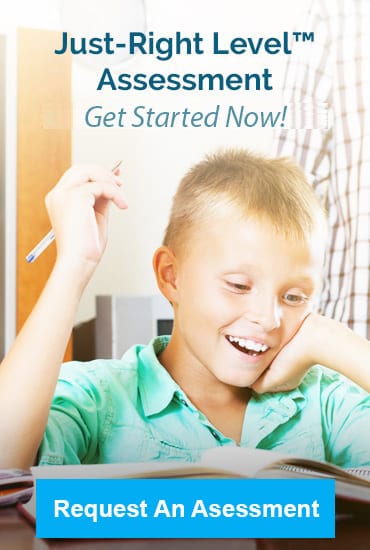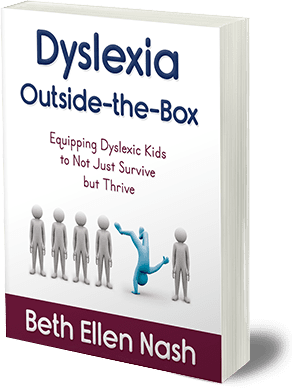Cognitive Skills Training Boosts Brain Connections for Efficiency

Cognitive Skills Training Addresses Underlying Developmental and Cognitive-Function Weaknesses
Many students have underlying developmental or cognitive-function weaknesses that need to be addressed in order for them to get the most benefit from any remediation. These include weaknesses in memory, attention, processing speed, auditory processing, visual tracking, and the ability to cross the midline of the body so both sides of the body work together in a coordinated manner. Focused cognitive skills training can help.
Neuroplasticity of the Brain – IQ Is NOT Static!
The traditional “wisdom” in special education has been that intelligence quotient (IQ) remains static over time. This is true only without specific cognitive skills training to strengthen underlying cognitive functions. Since most schools have embraced the traditional wisdom, they don’t expect to see much change in IQ with special education; therefore that is usually the result they get.
In contrast, marked improvement often occurs for kids who participate in programs that focus on strengthening underlying cognitive processing. This is accomplished by exercising the necessary neurological pathways through targeted use, spaced repetition, and review of the new skills at gradually increasing difficulty levels.
There has been much recent neuroscience research showing the plasticity of the brain. This means that the brain can and does change depending on how we use it. The neural pathways we use repeatedly become stronger. The body coats the neuron with a fatty-acid layer in a process called myelination. This insulates the neuron so the electrical impulses that carry messages travel through it more efficiently. This is why omega-3 and omega-6 fatty acids are so important to our physical and mental well-being. They are essential for this myelination process.
The saying “Use it or lose it” is true in the case of neural pathways. The neural pathways we do not use atrophy, or dissolve, over time. The brain rewires itself to be most efficient for the decisions and actions that occur on a regular basis. For example, if you need to be out hunting for your food, that requires different neural pathways than if you need to hunt for nuances in text.
Whatever it is you practice is what you become proficient at doing. The areas of your brain that you use frequently become more efficient over time. Practice really does make perfect, or at least leads to mastery. It is important to practice correct techniques for whatever you’re learning. It is very difficult to unlearn bad habits. The brain physically needs to rewire itself in order to unlearn something.
Neuroplasticity research shows that the brain can and does change with focused effort and practice. This gives hope to those struggling with dyslexia and other learning challenges. The phrase “neurons that fire together wire together” can help you remember what you are giving your child during those repeated practices.
Cognitive Skills Training to Strengthen Underlying Neural Pathways
The approaches I overview work on underlying cognitive skills (mental-processing skills). They are based on current neuroscience research that shows that neural pathways that are repeatedly trained and strengthened are more efficient. While these approaches are less established as interventions for dyslexics, for many struggling learners, training with one of these approaches is even more important than academics. It lays the foundation of more efficient neural wiring, allowing all of the thinking and learning that use that neural wiring to be that much more effective. Although not documented specifically for dyslexia, they are documented interventions for many conditions that a dyslexic person can also have.
Wings to Soar offers BrainWare SAFARI, HearBuilder, and Fast ForWord. These online programs develop cognitive processing. Although a trained professional oversees a student’s progress, the cost is much lower than going to a professional’s office for one-to-one sessions. The online programs we offer are often much more affordable given that a computer can provide much of the intervention and the trained coach is only needed for oversight. Online programs provide the added bonus that time can be spent retraining the brain wherever there is internet access rather than requiring travel time and expenses.
Mindprint Cognitive Skills Assessment
We are pleased to be able to offer this affordable cognitive skills screener. Usually, assessment of these skills is only available through an expensive, more comprehensive neuropsychological assessment. This cognitive skills screener can help provide a baseline prior to cognitive skills training programs such as those mentioned below (with a post-test option) and for some students will clarify that additional more extensive assessments should be pursued.
Fast ForWord
Fast ForWord is a more intensive intervention for students who have a significant gap in reading, issues with auditory processing, and two or more of the following problems: memory, attention, processing speed, and sequencing. Targeting underlying cognitive functions directly gets at the root of the reading struggle that must be addressed for any reading intervention to be effective. Following two foundational modules that specifically build these underlying cognitive skills, the program moves on to specifically build language and reading skills. Fast ForWord is very effective at improving auditory processing and is a dyslexia intervention tool. Wings to Soar includes Fast ForWord within our Brain Boost Breakthrough Intensive Intervention.
HearBuilder
BrainWare SAFARI Cognitive Skills Training
BrainWare SAFARI incorporates the latest neuroscience and decades of proven clinical approaches to cognitive skills training into an engaging video-game format. By strengthening the cognitive skills that are the most necessary for performance in school, work, and life, BrainWare SAFARI builds learning capacity and effective thinking. BrainWare SAFARI includes 20 games that develop and strengthen 41 cognitive skills that fall into six categories:
- Attention
- Memory
- Visual processing
- Auditory processing
- Sensory integration
- Logic, reasoning, and planning
(Please note that our license agreement with BrainWare SAFARI only allows us to add this to the package for a student who is enrolled in academic curriculum with Wings to Soar Online Academy.)
Other Cognitive Skills Training Programs
Cogmed Working Memory Training (Cogmed) is an online solution that specifically targets working-memory skills. The exercises in Cogmed help increase the number of pieces of information the memory can retain at one time. It specifically targets working memory, which results in improved attention. (Wings to Soar has offered this program in the past and would consider adding it again with sufficient interest.)
Two other cognitive skills training intervention programs that have solid supporting research and with which I have personal experience are the National Institute for Learning Differences (NILD) and Feuerstein Instrumental Enrichment (FIE). These are both much more expensive given that they are delivered one-to-one or in small groups with highly trained specialists. Both are excellent programs.
There are many other programs that claim to address underlying developmental skills and cognitive functions such as Learning Rx, Brain Balance, National Association for Child Development, The Well-Connected Brain, and Brain Gym® International. I do not have adequate personal experience with these programs to be able to recommend them, although I have heard positive anecdotal reports from happy users. If they have research studies documenting their results, I have not personally read them, since Wings to Soar focuses on online interventions rather than in-person options.
Always conduct your own research before proceeding with any program, especially if there is a substantial financial investment. Many programs make broad and sweeping claims that are beyond the scope of what current research reveals. I recommend considering programs that have multiple published research studies in respected, peer-reviewed journals to find the best program for your child.
Be sure to follow the protocols of any program in which you choose in invest your time and money. If your child does not put in the necessary time to do the work, they won’t get maximum results.


